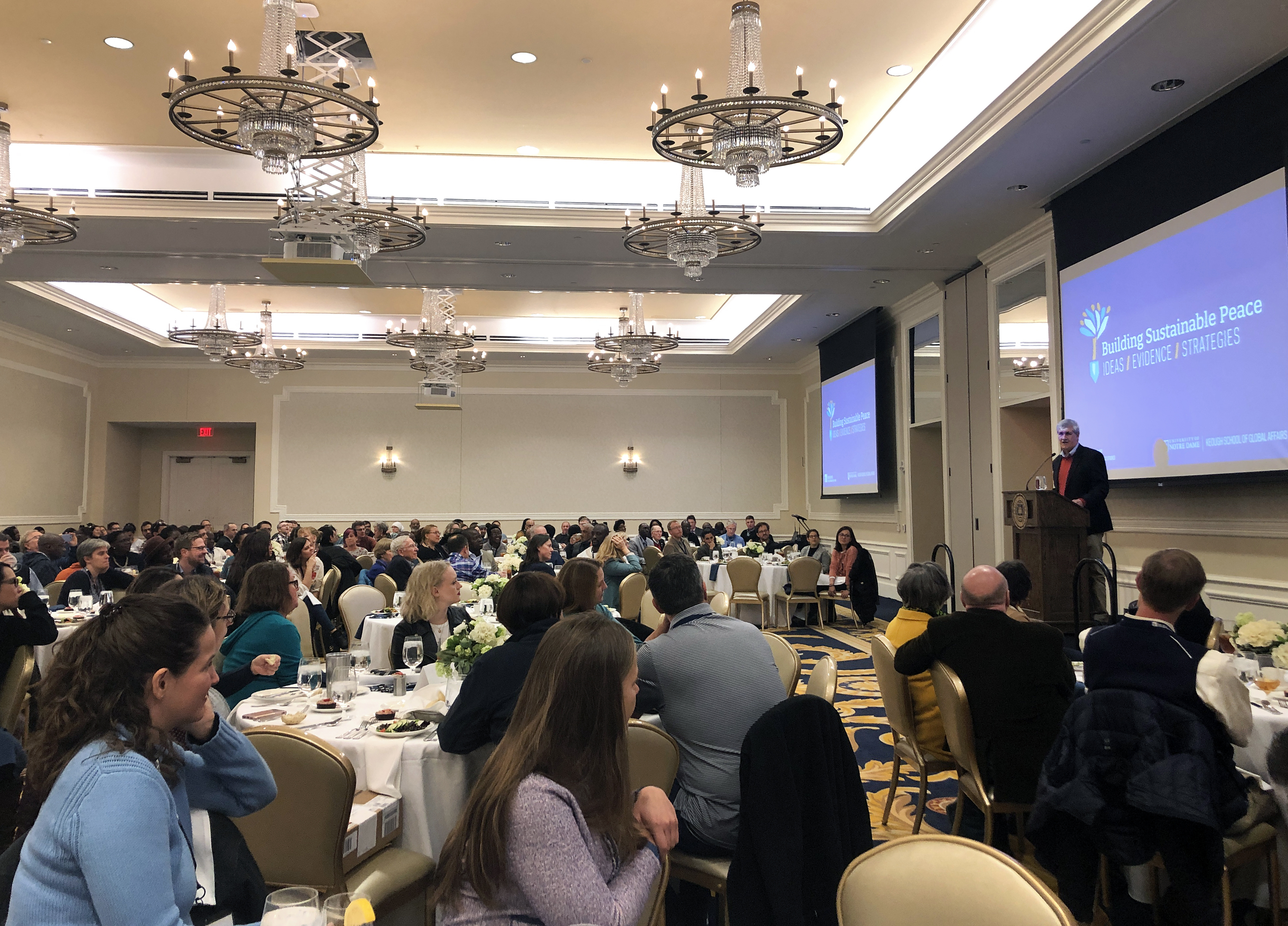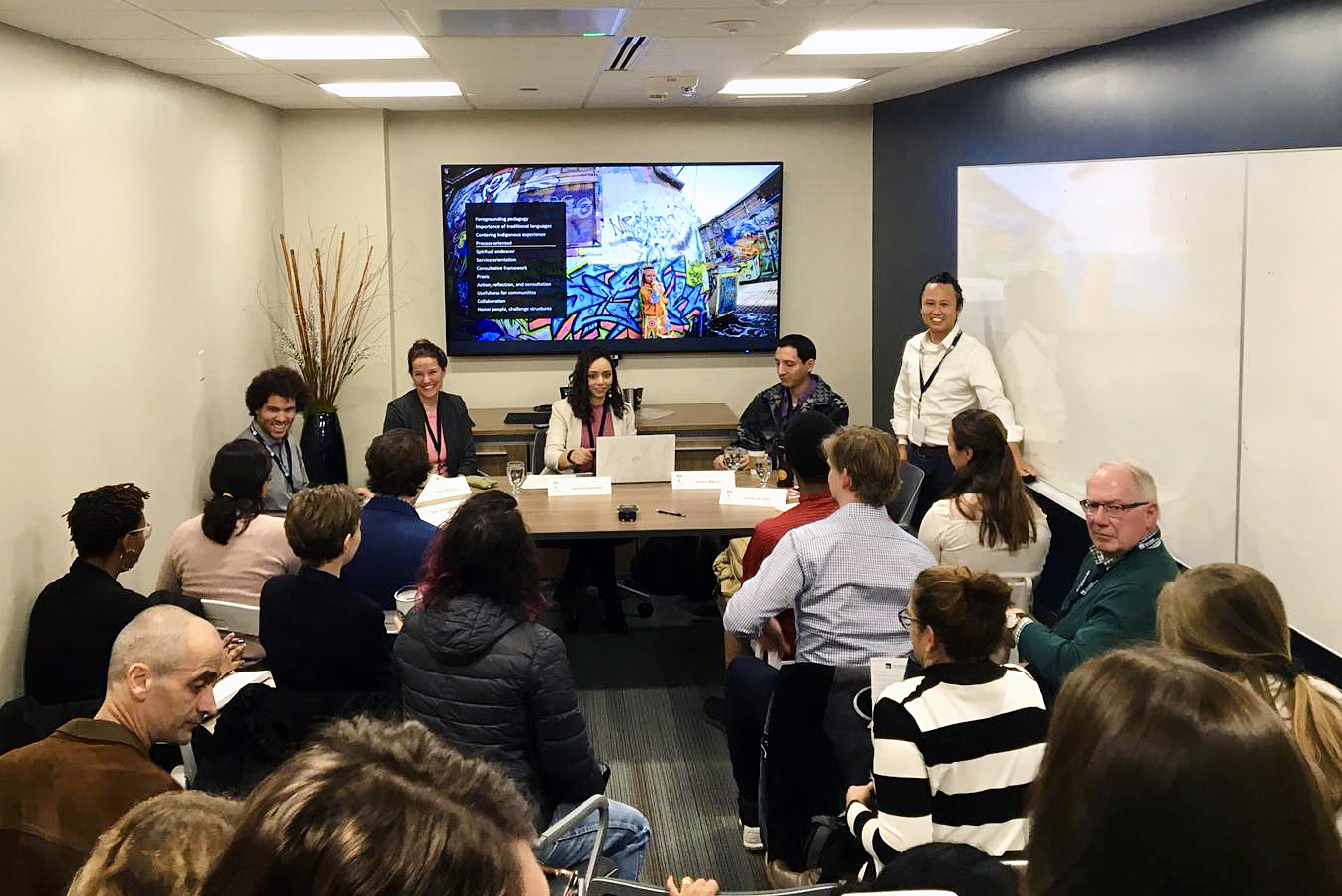“The Path Home,” a short film commissioned by the National Spiritual Assembly of the Baha’is of Canada, was screened at an international conference on peace hosted by the Kroc Institute for International Peace Studies at the University of Notre Dame, in South Bend, Indiana.


The film was presented by producers Jordan Bighorn and Esther Maloney as part of a series of presentations that explored the relationship between collective narratives, justice, healing, and sustainable peace. The post-film discussion was facilitated by Justin de Leon, a Visiting Research Fellow at the University of Notre Dame, and included lively conversation with conference attendees.
“The Path Home” was originally produced as a contribution by the National Assembly to Canada’s Indian Residential Schools Truth and Reconciliation Commission. The film premiered in Ottawa prior to the closing events of the TRC in 2015.
The screening at the University of Notre Dame took place as one of the opening sessions of the conference, Building Sustainable Peace: Ideas, Evidence, Strategies. Over 450 people attended the conference from 37 different countries. The purpose of the conference was to bring together scholars and practitioners from around the world into a process of mutual learning and dialogue.
Mr. Bighorn, Ms. Maloney, and Dr. de Leon were joined by Kyle Schmalenberg and Laura Friedmann, Media Officer with the Office of Public Affairs of the Baha’i Community of Canada. They collectively contributed to a number of sessions throughout the conferences on a number of themes, including: “Storytelling and Community Building: Media Practitioners working for Peaceful Societies” and “Native American Approaches to Peacebuilding”. Dr. de Leon commented, “As Baha’is who are looking to understand the powerful role of social discourse, it is important to be present in the spaces where thought and policy are being formed.”
“The conference highlighted the important role of peace-building at the community level, and the dialogue between researchers and practitioners allowed us everyone to think in new and hopeful ways about the future,” Ms. Friedmann also remarked.
In his closing remarks, John Paul Lederach, American Professor of International Peacebuilding at the University of Notre Dame, remarked on the important role of young people in the future of peacebuilding.
“We are bearing witness to the shedding and shifting of the system,” Prof. Lederach asserted, asking, “How can we prepare the younger generations to be present, persistent, creative and compassionate?” He concluded his remarks by suggesting that we are living in unmoored times and that faith-inspired action can act as an anchor for our continued actions for peace.
“The conference was inspiring for the way in which practitioners shared the connections between their own personal growth and understanding and the contributions they were able to make as peace builders in their contexts, both at the local and global levels,” said Ms. Maloney. “Several practitioners mentioned the importance of both the power of narrative and our awareness of how we engage in digital spaces, which were themes our group has also been learning about.”
“In several ways, the conference felt like it was shedding various illusions about the reality of peace-building and sustainability” added Mr. Schmalenberg. “For us as panelists, we saw how our approach and delivery was absorbed by audiences precisely because it was framed in a less academically-similar way, like most things they hear in these spaces, and instead could grasp the value and importance of our local, community-based, grassroots lens.”

